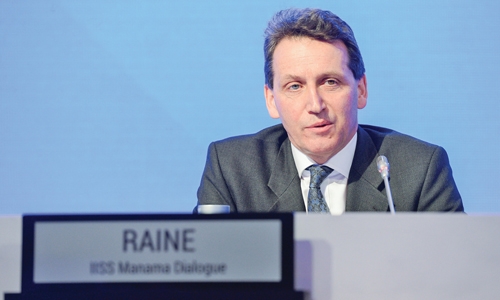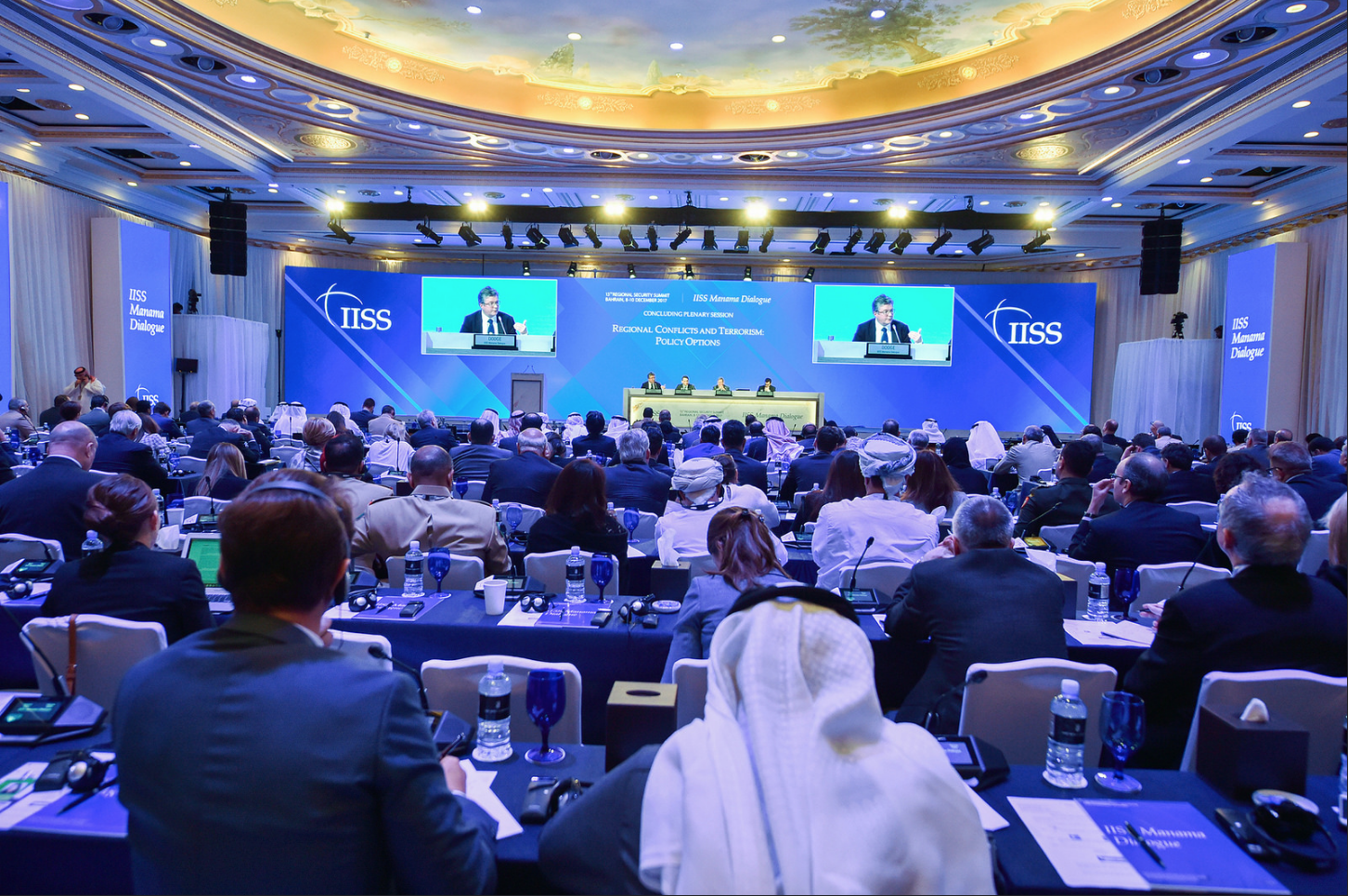Next battle against terror to be in cyber space: Expert
Manama : “Cyber domain is where the next battle with terrorists will take place. Cyber threat should be a top priority in the fight against terrorism,” said John Raine, Senior Adviser for Geo-Political Due Diligence, IISS. He was speaking on ‘Regional Conflicts and Terrorism: Policy Options’ at the concluding session of the IISS ‘Manama Dialogue’ yesterday. “Terrorism has been with us for a long time. We have seen a remarkable high level of adaptability in terrorists where they are already planning next generation of capabilities, targets and deployments. It would be foolish to assume that they were seeking merely to repeat what they did last time, cyber terrorism in particular, “ Raine said.
“My aspiration would be that all members of a coalition invests heavily in ensuring compatibility frameworks both legal, political and military. Not disregarding other forms of terrorism, I say that we now prioritize cyber terrorism,” Raine said.
“Now in the Middle East we now have a new ascendant power, Iran who without wishing to flatter an adversary rather to understand it has a massive number of techniques which positions to act as a sponsor for further acts of terrorism which requires now to shift our gaze a little bit away from the Sunni threat and look at what the Shia groups can do,” he said.
“First of all, Iran is a major cyber adversary to a premier league player and the countries ability to act largely with impunity in the cyber domain. Cyber terrorism further is as menacing as a conventional and unconventional military arsenal. We have no reason to believe that those techniques won’t be cascaded in some form to proxies and levants,” he said.
“Secondly, Iran is an accomplished agent of proliferation and it is proliferating across the Middle East,” he said. “Iran is at risk of overstretching given the number of theatres it is involved in; while it is in a position of strength, that leaves it exposed and we may see vulnerabilities opening up. Further, Cyber domain is where next battle with terrorists will take place; cyber threat should be a top priority in the fight against terrorism, where terrorists are constantly adapting their tactics that leaves Cyberattacks a growing threat,” said Raine.
“In Iraq’s recent history, huge battlefield sacrifices have been squandered and there has been a rise of Hashid Shaabi signals re-militarisation of Iraq. Further, can Iraq’s politicians put sectarian rhetoric behind them in May 2018 election campaigns and focus on delivering services? Leaders need to abandon politics of fear and apologise for the past. The idea that Iraq under Saddam wasn’t sectarian in nature and is simply not true,” Professor Toby Dodge, Director, Middle East Centre, London School of Economics and Political Science, said.
“There is certainly a moment of chaos in regional politics. Also, a lot of people in Washington don’t want to own Syria; it’s difficult to know what the current US administration is trying to achieve or is very unclear to what it’s stand is. We can further see the Lebanese government becoming weaker in face of Hizbullah. It’s time to think analytically about implications as transnational Shia militias are set to reshape northern Middle East,” said Emile Hokayem, Senior Fellow for Middle East Security, IISS.
Related Posts


